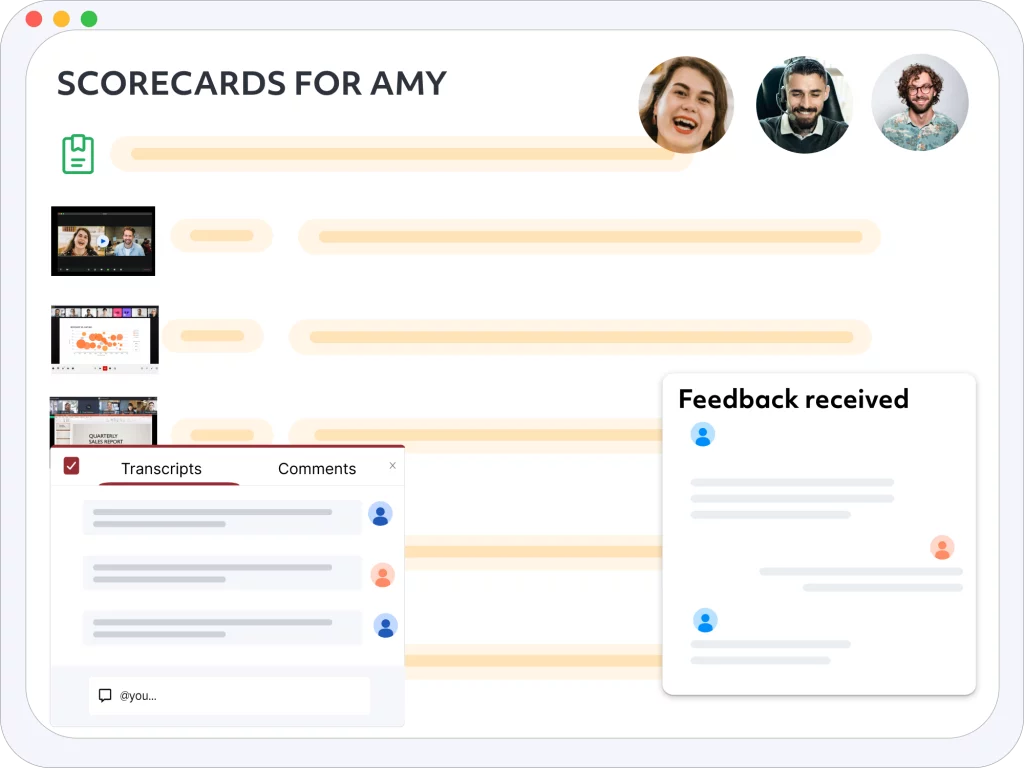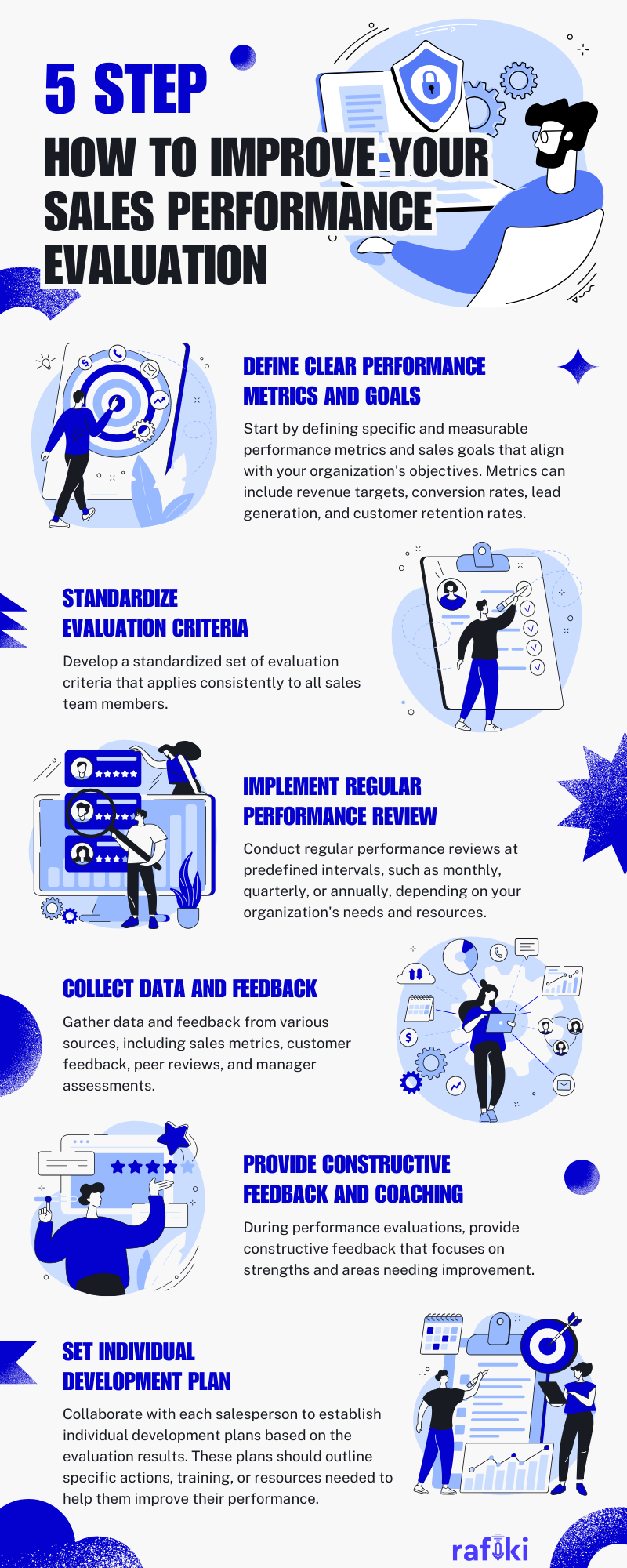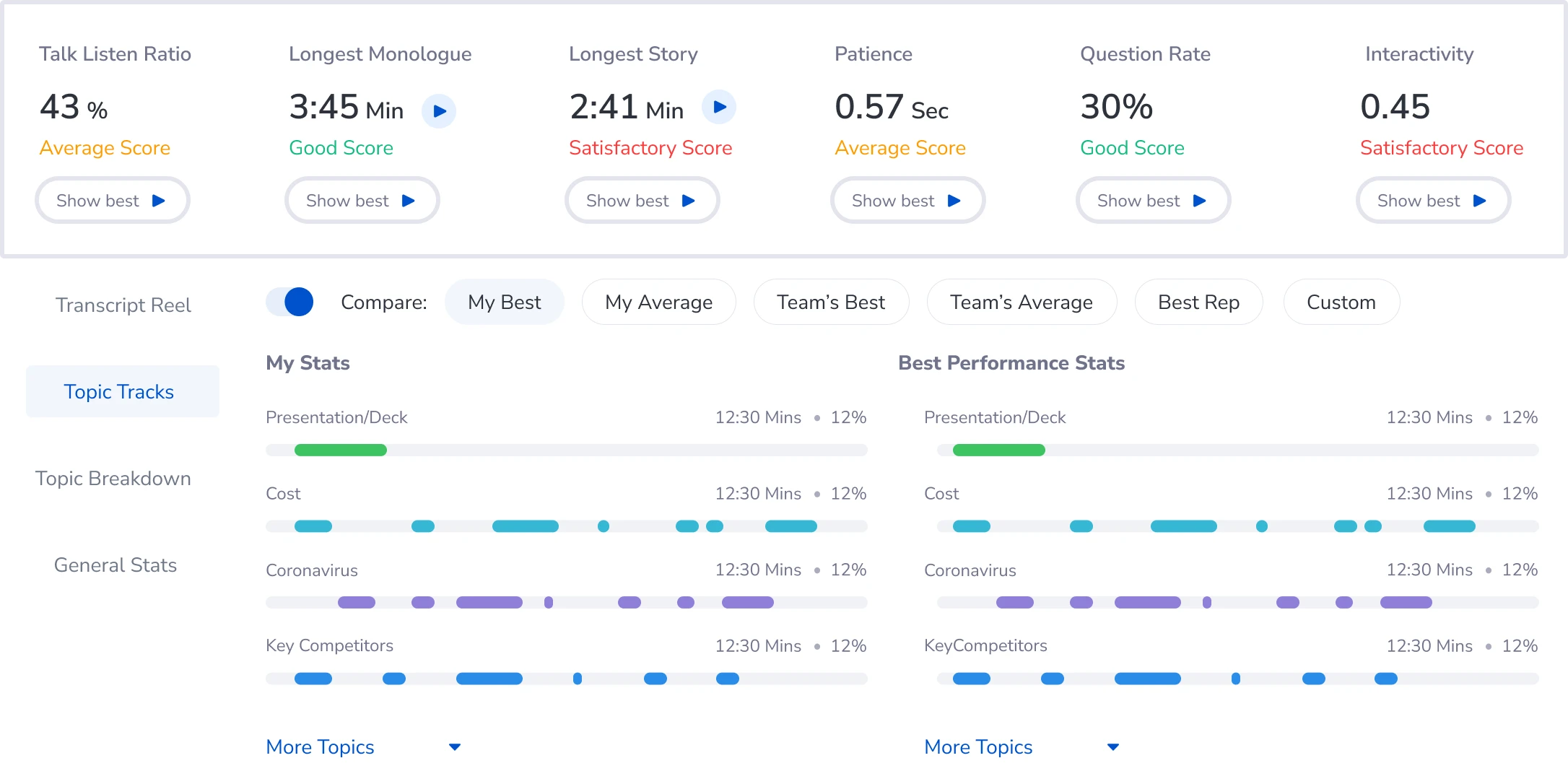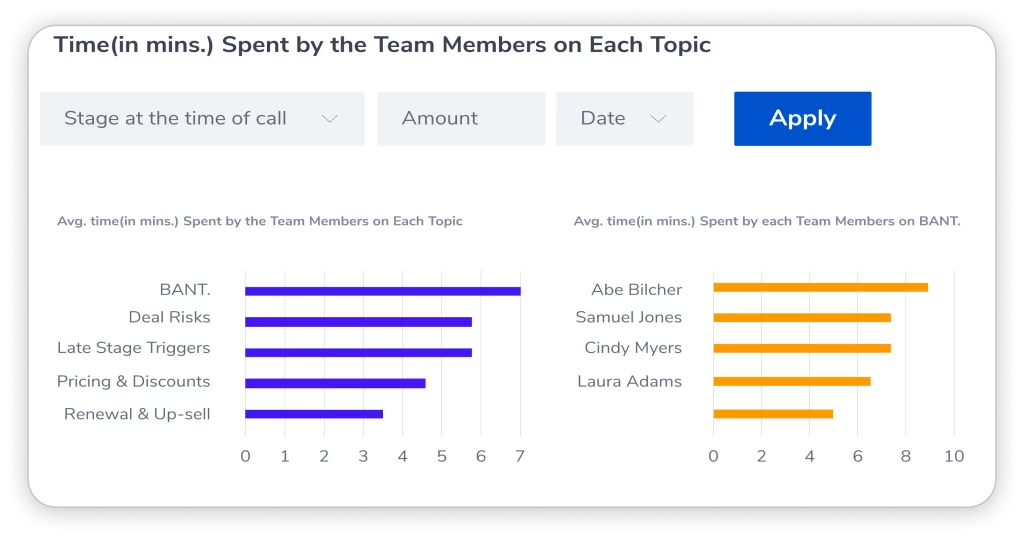5 Steps: How to Improve Your Sales Performance Evaluation
In a rapidly evolving business environment, refining sales performance evaluation processes is essential for any organization aiming to optimize effectiveness and drive strategic alignment. According to McKinsey, businesses that emphasize skill-building, particularly in evolving sales methodologies, see considerable improvements in performance. Forrester similarly highlights the critical need for adopting integrated approaches that align with digital transformation and customer-centric strategies .
Effective evaluation not only motivates sales representatives but aligns their efforts with the company’s strategic objectives. Here’s a five-step guide to refining your sales performance evaluation process, enhanced by smart call coaching with Rafiki.
1. Define Clear, Measurable Objectives
Start by setting clear and measurable objectives that align with your business goals. Whether it’s increasing the number of new client acquisitions, improving customer retention rates, or boosting the overall sales volumes, each goal should be specific, measurable, achievable, relevant, and time-bound (SMART). This clarity helps in precisely assessing the performance of each sales representative against these benchmarks.
Rafiki can help by tracking and analyzing sales activities against these goals. By monitoring key performance indicators (KPIs) such as conversion rates and average deal size, Rafiki provides a clear assessment of how individual sales representatives are performing relative to the set objectives.
2. Utilize a Balanced Scorecard Approach
Adopt a balanced scorecard that includes a mix of quantitative and qualitative criteria. Quantitative metrics might include sales volume, revenue generated, and new accounts opened. Qualitative aspects could cover customer feedback, teamwork, problem-solving skills, and adherence to company values. This comprehensive approach ensures a holistic evaluation of a salesperson’s contributions and performance.

Rafiki excels in offering a comprehensive view by not only tracking standard sales metrics but also providing qualitative analysis through its smart call scoring system. This feature evaluates sales calls based on communication effectiveness, customer engagement, and other critical soft skills, ensuring a holistic view of performance.
3. Incorporate Self-Assessments and Peer Reviews
To enhance the evaluation process, include self-assessments and peer reviews. Self-assessment allows sales representatives to reflect on their own performance and identify areas for improvement. Peer reviews, on the other hand, provide different perspectives on a salesperson’s working style and effectiveness. These insights can help managers gain a more rounded view of each team member’s performance.
Rafiki supports this by allowing sales teams to review their own call recordings and receive feedback from peers directly within the platform. This fosters a culture of continuous learning and mutual improvement. Team members can highlight strengths and suggest areas for improvement in a constructive manner.
4. Leverage Technology for Continuous Feedback
Implement sales performance management software to track sales activities and results in real-time. Tools like CRM systems can provide ongoing insights into each salesperson’s effectiveness, customer interactions, and overall productivity. Continuous feedback is vital for making timely adjustments and providing sales representatives with the opportunity to improve consistently throughout the year.
Rafiki’s analytics and feedback mechanisms provide sales representatives with immediate insights into their performance.
5. Regular Review and Adaptation of Evaluation Criteria
Finally, regularly review and update the evaluation criteria to ensure they remain relevant to the ever-evolving market conditions and company goals. This may involve adjusting the metrics used, the weight assigned to different criteria, or the techniques employed for gathering feedback. An adaptive evaluation process stays effective and relevant, thereby supporting continual improvement in sales performance.

Conclusion
By adopting a structured approach to sales performance evaluation, organizations can not only pinpoint areas for improvement but also harness the full potential of their sales teams. Integrating advanced analytical tools like Rafiki plays a pivotal role in this transformation. Rafiki’s capabilities in smart call coaching and real-time feedback offer invaluable insights that directly enhance sales tactics and strategy.
Rafiki’s technology facilitates a deeper understanding of client interactions, enabling sales teams to refine their approach based on empirical data. With features like automated call scoring and feedback, Rafiki helps sales representatives identify and replicate successful behaviors, while also pinpointing and addressing areas that need improvement. This continuous loop of feedback and adjustment fosters an agile sales environment where strategies can be adapted swiftly to meet evolving market demands.
Empower Your Sales Force
Furthermore, the ability of tools like Rafiki to provide detailed analytics and performance tracking empowers managers to make informed decisions about training needs and incentive programs. This data-driven approach ensures that investments in sales development are targeted and effective, leading to better resource allocation and enhanced sales outcomes.
In conclusion, enhancing your sales performance evaluation with smart technologies and strategic planning positions your organization for sustained growth and success. By leveraging tools like Rafiki, companies can transform their sales processes into dynamic, efficient operations that not only meet but exceed market and customer expectations. Implementing these steps will ensure that your sales force remains adaptable, motivated, and consistently aligned with your strategic business goals.


